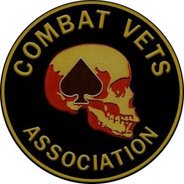Raz Is Wrong
Guy Raz writes:
Members of the U.S. armed forces are prohibited from speaking out against the war in Iraq. The Uniform Code of Military Justice limits what soldiers may say about political issues.Note that Raz doesn't tell you where the UCMJ limits speech about political issues or specifically where in the UCMJ the U.S. armed forces have been prohibited from speaking out against the war in Iraq.
It gets better:
"You know this isn't really what we signed up to do. This isn't really what I believe America is about," an Army intelligence officer says, speaking from his base in Iraq.Wrong! But, hey, check it out for yourself.
Comments like this would land him in a military prison if he were identified.
DoD Directive 1344.10, "Political Activities by Members of the Armed Forces on Active Duty"
5 CFR 734: "Political Activity of Federal Employees"
Hatch Act for Federal Employees
UCMJ: Punitive Articles
Then, contact NPR's Ombudsman and tell them that Raz is wrong.
I also find it telling that Raz would mention this ...
It's known as the Appeal for Redress, and all of the signatories are active-duty servicemen and servicewomen.... but then fail to mention the Appeal for Courage.
Nearly 2,000 troops have signed the petition, most of them veterans of the Iraq war. There are about 1.4 million active- duty personnel in the U.S. military. [link added]
As an American currently serving my nation in uniform, I respectfully urge my political leaders in Congress to fully support our mission in Iraq and halt any calls for retreat. I also respectfully urge my political leaders to actively oppose media efforts which embolden my enemy while demoralizing American support at home. The War in Iraq is a necessary and just effort to bring freedom to the Middle East and protect America from further attack.Perhaps Raz should look into the partisan support of Hutto's Appeal for Redress?
Personally, I'm not a fan of either "Appeal." [UPDATE: That's too neutral. I would sign the Appeal for Courage and not the Appeal for Redress.] I am in favor of military members being able to express their opinions about the war, especially as citizens in letters to the editor and on their blogs. However, like , I tend to worry about how politicians and the media treat such public expressions by members of the military on any political issues.
Implicit in the appeal is the suggestion that national-security policies somehow require the consent of those in uniform. Lately, media outlets have reinforced this notion, reporting as newsworthy the results of polls that asked soldiers whether administration plans meet with their approval.UPDATE: Journalists who wrote political checks
(D) CNN, Guy Raz, Jerusalem correspondent, now with NPR as defense correspondent, $500 to John Kerry in June 2004.Why am I not surprised?
Raz donated to Kerry the same month he was embedded in Iraq with U.S. troops for CNN. He also covered reaction to Abu Ghraib and President Bush's policies in the Middle East. In 2006, he returned to NPR, and covers the Pentagon.
"Yes, I made the donation," Raz said in an e-mail. "At the time, I was a reporter with CNN International based out of London. I covered international news and European Union stories. I did not cover US news or politics."
Both CNN and NPR prohibit political activity by all journalists, no matter their assignment.





No comments:
Post a Comment